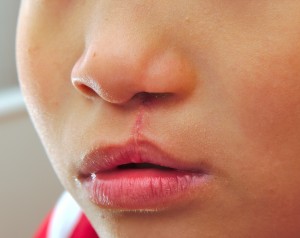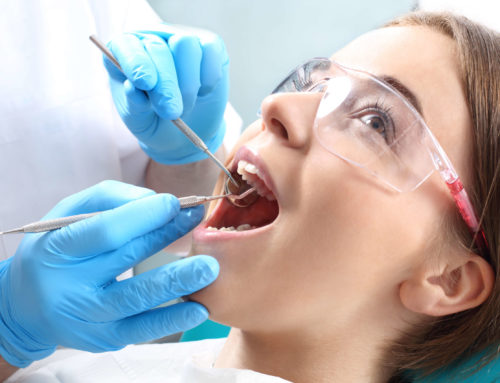
Commonly Heard of Genetic Oral and Dental Abnormalities
Did you know that genetic disorders or diseases are caused by an abnormality or mutation that occurs in one’s DNA / a gene? Oral and dental abnormalities can be found in people of all ages, races, and backgrounds. Unfortunately, these genetic issues can further interrupt the mouth’s development, as well as the growth and health of other parts of the body.
The following are a handful (but not all) of genetic oral and/or dental abnormalities:
Anodontia
While anodontia may be rather rare, it is a well-known genetic disorder. Anodontia is a hereditary condition known for leaving a patient fully without teeth because they just never grow in. This is generally seen with a lack of permanent teeth, though it can also affect baby teeth. Others may simply experience hypodontia or missing a select few teeth rather than all.
Types and Common Patterns
Anodontia can involve the absence of all teeth—known as total anodontia—or just some teeth, which is referred to as hypodontia. Hypodontia is actually far more common and typically presents as a few missing teeth rather than a completely toothless mouth. The condition most frequently affects specific teeth: third molars (also called wisdom teeth), upper lateral incisors, and both upper and lower second premolars (bicuspids) are the usual suspects that just don’t show up to the party.
Effects on Oral Development
These missing teeth aren’t just an issue for your smile—they can also impact the development of the upper and lower jawbones, often leading to spacing problems and altering how the jaws grow. Hypodontia tends to be more common in males, though it can affect anyone, and the frequency varies between different populations.
Cleft Lip / Palate
Cleft lips and cleft palates are two of the most common craniofacial abnormalities. When a lip or palate is cleft, the tissue did not properly fuse or form – leaving an opening in the tissue. This malformation is easily diagnosed aesthetically at birth. A family history of cleft lips/palates increases the chances of your children being born with one or both.
Gingival Fibromatosis
An overgrowth of the gum tissue is known as gingival fibromatosis (gingival overgrowth), also a rare condition. There are different severity levels – the most extreme of which involves the gums’ excess tissue covering the crowns of the teeth and leading to issues like bone loss, excess bacteria production, and bleeding. Ouch!
Malocclusion
If your teeth are crowded due to too many or too few teeth, or even because of a misaligned jaw, you may be experiencing malocclusion. This bad bite is also known as a crossbite, overbite, underbite, or open bite, depending on the misalignment, which varies. Other genetic oral/dental issues, like a cleft palate, can also lead to this generally inherited abnormality.
Supernumerary Teeth
Also known as hyperdontia, supernumerary teeth are described as having too many permanent teeth. Most often, only one extra tooth is present, abnormally shaped, and can actually delay other teeth from erupting straight or at all. Your dentist may recommend having this tooth extracted.
Supernumerary teeth can show up just about anywhere in the mouth, but are most commonly found between the two front teeth (where they’re called mesiodens) or in the upper molar area as “fourth molars.” These extra teeth usually have a cone-shaped crown and a short root, and while they sometimes remain hidden under the gums, they can also erupt and crowd your existing teeth.
Heredity seems to play a role in the development of supernumerary teeth, since they tend to run in families. In rare cases, people may have multiple supernumerary teeth without any other health issues, but extra teeth are often linked with other conditions such as cleft lip/palate, cleidocranial dysplasia (a genetic disorder affecting bone and teeth development), and Gardner syndrome (an inherited disorder associated with colon polyps and other growths).
Amelogenesis Imperfecta & Dentinogenesis Imperfecta
A couple of the more well-known genetic conditions are amelogenesis imperfecta and dentinogenesis imperfecta. Amelogenesis imperfecta is an inherited disorder that interferes with the formation of tooth enamel—the hard, protective surface covering your teeth. This disorder can result in either the enamel not hardening properly (mineralization issues) or in less enamel being produced overall. As a result, teeth may appear discolored, be unusually small, or wear down quickly.
On the flip side, dentinogenesis imperfecta affects the dentin, the layer beneath the enamel that forms the bulk of the tooth. This genetic glitch leads to defective dentin formation, causing the outer enamel to flake off more easily. Both conditions can impact baby and permanent teeth alike, leaving them weak, sensitive to temperature and pressure, and prone to rapid wear.
If you notice teeth that seem especially fragile, translucent, or sensitive, these hereditary conditions could be the culprit. Fortunately, advances in dental treatments mean that even complex genetic conditions can be managed to protect your smile for years to come.
Periodontal (Gum) Disease
Periodontal disease, or gum disease, is a condition where bacterial infection and inflammation damage the soft and hard tissues supporting your teeth. In its early form—gingivitis—your gums may become red, swollen, and bleed easily, but the good news is that gingivitis is reversible with proper care. However, if left untreated, gum disease can progress to periodontitis, where the gums and bone that support your teeth become seriously damaged. This advanced stage can result in loose teeth that may eventually fall out or require removal by your dentist.
While poor oral hygiene is the primary culprit behind gum disease, genetics can also play a significant role in how susceptible you are to developing it. Researchers have even found associations between periodontal disease and systemic health issues such as heart disease, stroke, diabetes, and even preterm birth. So, if gum disease runs in your family, keeping a close eye on your oral health is extra important!
How Dentists Diagnose Genetic Dental Abnormalities
Wondering how your dentist gets to the root (pun intended) of genetic oral or dental concerns? Diagnosis typically involves a combination of detective work and dental know-how:
- Health History Sleuthing: Your dentist will first take a detailed family and medical history to sniff out any patterns that might point to hereditary conditions. If your grandma, uncle, or sibling all had similar dental woes, that’s a clue!
- Thorough Oral Exam: Next comes a close-up look at your teeth, gums, and jaws. This hands-on exam helps spot any abnormalities in shape, number, placement, or development.
- Dental X-rays & Imaging: To get the full picture—sometimes literally—your dentist may order panoramic X-rays, CT scans, or other imaging. These reveal what’s going on under the surface, like hidden extra teeth or jaw bone differences.
- Genetic Testing Referral: In rare or complex cases, your dentist might work alongside genetic counselors or medical specialists. They could suggest genetic testing for a clear diagnosis, especially if a syndrome is suspected.
- Team Approach: Don’t be surprised if your care team expands—orthodontists, oral surgeons, and pediatricians might all lend a hand to create a treatment plan tailored to you.
Identifying the specific cause early can lead to better treatment options, restore function, and help guide future dental care.
Seek Treatment for Teeth Abnormalities in Middle Tennessee
Some teeth disorders come about in primary development, while others impact secondary development. Whether the issue is genetic periodontal disease or amelogenesis imperfecta, there are many hereditary oral/dental anomalies that can be corrected or aided with dental work. If you think that you or your child may have something wrong with your mouth, contact your dentist. Even those who are more susceptible to tooth decay could be linked to genetic issues, say researchers.
Early diagnosis and treatment can make a significant difference, so keeping your dentist in the loop is key to maintaining a healthy smile—even if genetics try to stack the odds against you.
At Snodgrass-King Dental Associates, we have specialists to care for your every dental need from birth to adulthood. Request your appointment with us today!




